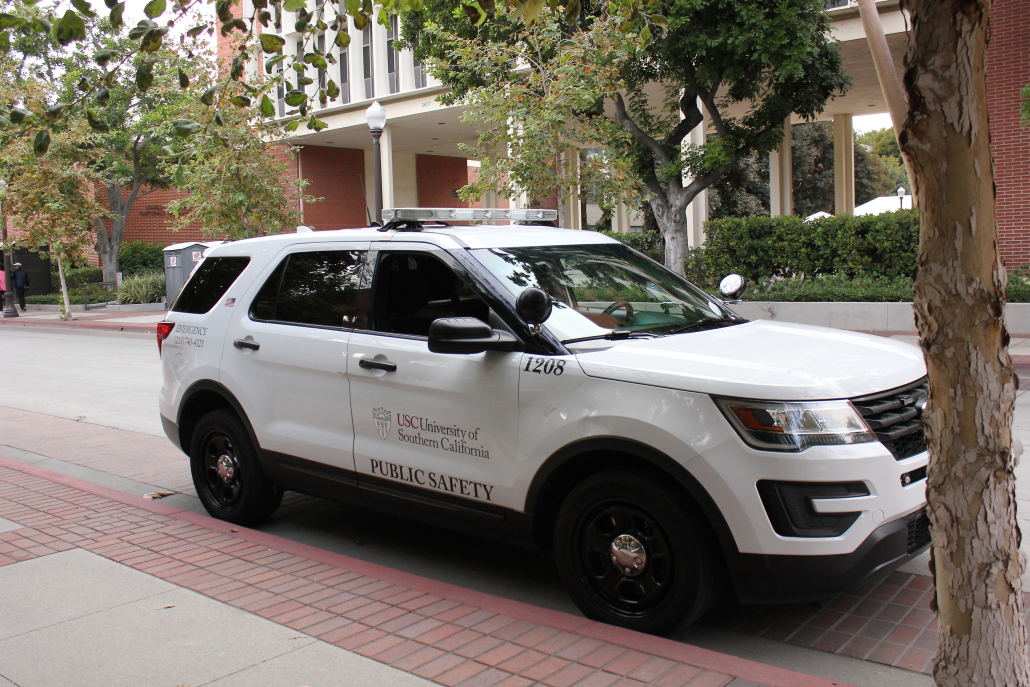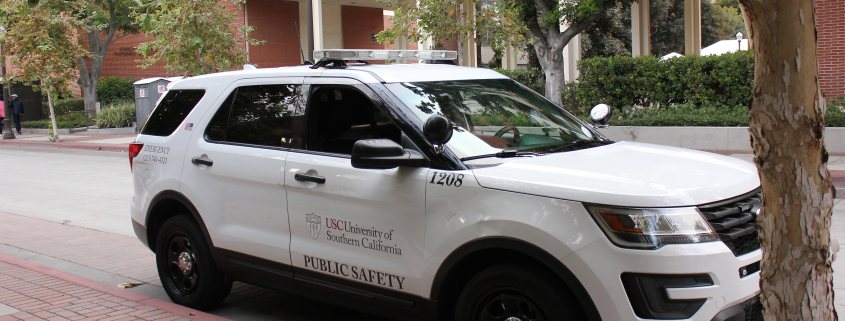Cell phone thefts around campus rise from 2021

A food delivery became a near phone robbery for a USC student earlier this month. A Department of Public Safety alert sent Oct. 2 notified the University community that a delivery driver took a student’s phone by force during a takeout drop-off. A physical altercation began between the two where the student managed to retrieve his phone, but had been punched by the suspect several times.
As of publication, there have been 16 cell phone robberies reported to DPS since the beginning of 2022. Seven of these occurred since move-in day on Aug. 8. The number of cell phone thefts saw a 23% increase from 2021, when 13 robberies were reported, and a 45% increase from 2020, when 11 robberies were reported. Prior to the coronavirus pandemic, the University saw a higher rate of cell phone thefts, with 35 reported in 2019.
DPS Sergeant Ralph Roseli wrote in a statement to the Daily Trojan that the number of cell phone robberies saw a decrease due to inactivity on campus during 2020 and 2021. Now that students are back on campus and have been for the greater part of 2022, robberies are rising, but have not risen to pre-2020 levels.
“The increase is driven by the fact that we have more people present here on campus than we had in the last couple of years,” said Roseli, who also works as a training coordinator and assistant public information officer, in an interview with the Daily Trojan. “As we come out of our isolation during the pandemic, people are relearning how to interact with one another.”
Roseli said certain situations, such as simply having a cell phone, especially on the sidewalks or by the street, often leave students more vulnerable to these kinds of robberies.
“Those who perpetrate this crime are looking for what they might perceive to be easy opportunities,” Roseli said. “Even if one were paying perfect attention to all of their surroundings and had their cell phone out, they might be perceived to be distracted and thus targeted.”
Dani Mendez, a senior majoring in communications, was the victim of an attempted cell phone theft at a gym on campus. Mendez left her phone on the treadmill to save her place and left for the restroom. By the time she came back, it was gone.
“Fortunately, I had my friends who work there. They were able to trace it,” Mendez said.
Mendez also recalled the times she has seen phones left unattended and said how this can invite potential robbers to take their devices.
“I’ve seen so many phones left on tables, especially at [Tutor Campus Center],” Mendez said. “If you see someone leave something, give them a heads up because you don’t want that for yourself. It could happen to anybody.”
Despite the danger that exists in having a cell phone visible to potential robbers, Mendez said it’s difficult to keep devices away all the time because of the numerous functions they have for users.
“We have schedules and we’re trying to create a future, and our schedules are on our phones,” Mendez said. “If you lose that, you are kind of discombobulated.”
Roseli said he understands that cell phones are an essential accessory for many, but said this constant use could pose a danger to oneself, especially with robberies occurring at all times of the day.
“Especially with midterms coming, we’re all dependent on our devices. We are constantly communicating,” Roseli said. “It’s just a matter of balancing and having awareness when we’re out in public.”
Roseli said there are units patrolling both on and off campus to respond to crimes, as well as a plethora of closed circuit televisions and monitors watching 24 hours a day, and “yellow jackets” posted at key positions throughout the community.
“The key is, we want to encourage people to trust their gut, trust their instinct,” Roseli said about people dismissing unease during uncomfortable situations or encounters. “Oftentimes, when people know or sense something’s wrong, they talk themselves out of it because they don’t want to be rude or perceived as being biased, but, typically, there’s something behavior-wise that’s there that we really want to encourage people to listen to.”
Shania Jafri, a senior majoring in neuroscience, has also had her belongings stolen on campus. She expressed sympathy for the students who have become victims of the rising number of robberies, but said she isn’t surprised at the thefts’ frequency.
“It’s unfortunate that students are getting their phones stolen, but this is the area we live in,” Jafri said. “I’m not really fazed by it. This is how USC is, it’s in a very gentrified area.”
Jafri suggested small ways students can make themselves less vulnerable to thefts in general, including keeping valuables such as headphones and sunglasses away when out in public.
“Be conscious and understanding of USC and L.A.,” Jafri said. “Don’t walk with your phone in your hand as you get further away from campus.”
If a person finds themself in a dangerous confrontation, Roseli emphasized that they should refrain from engaging.
“It’s important that we recognize it’s just property that can be replaced,” Roseli said. “It’s not worth our safety and it’s not worth our well-being. As we look at our statistics, we find that our sole injuries come from when people fight back for their property.”

